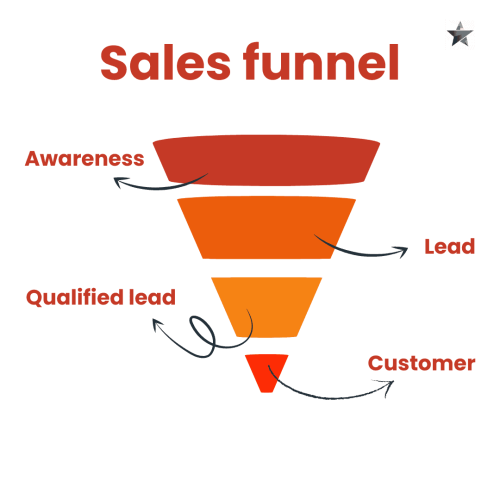Case study
Generating leads through events
Brief and goals
A business school offering Executive MBA and mini-MBA programs sought a new way to generate leads. Traditionally, referrals were a significant lead generation channel, complemented by leads from digital platforms after prospects viewed online ads.
With the Executive MBA priced at approximately €20,000 for the entire program and a duration of 2 years, the decision-making process of potential students was lengthy and required multiple touchpoints with school representatives.
The objective was twofold:
- Generate leads through a new channel, reaching individuals who hadn’t been in contact with the school before.
- Offer existing leads fresh touchpoints to nurture them towards enrolment
The school had an established presence in the digital space and had been delivering courses for over 10 years, so the focus was less on branding and positioning and more on delivering leads and closing. There was 1 intake of Executive MBA per year (starting in the autumn) and 2 of mini-MBAs (starting spring and autumn).
Setting the context
The problem was approached from a sales funnel perspective:

As mentioned above, the company was already generating awareness, but extra input was needed in the transition to leads and qualified leads, with the sales team taking care of the transition from qualified lead to customer.
In other words, the funnel needed to be extended in the two intermediate areas.
Solution
The solution was to develop two physical event formats: a bootcamp and a One Day MBA.
Having already established the basis for digital communication to maintain constant contact with leads, eMS was now tasked to finding new channels for engagement. events have proven to be highly effective for achieving both objectives (generating new contacts and converting them), due to:
· The direct, face-to-face interaction that occurs in both online and offline interactions is difficult to replicate through other channels (such as social media, emails, websites, ads, or content marketing).
· The teaser potential – events could simulate the experience offered in the full course but in a shorter time and with fewer resources (fewer teachers, less course material). This is particularly relevant for services and high-ticket products, offering a taste of the experience/product that increases trust before commitment.
· New content opportunities generated at the event. The presentations, speeches, discussions, etc could later become blog posts, videos, quotes for social posts and generate continuous interest and engagement.
· Increased referral efficiency – some events invited existing customers (students), who had an informal discussion with prospects, without any representative of the business present. This helped new leads ask questions and get honest answers about the services they were interested in.
eMS proposed concepts of events that would showcase the program’s experience: a bootcamp and a One Day MBA.
During these events, attendees had the opportunity to meet some of the lecturers, observe their interaction with the audience, and discover the type of content shared. They could ask direct questions to both the school representatives and alumni (existing customers), with a commitment of only one day instead of four months for the mini MBA and two years for the Executive MBA.
The events were then promoted through a combination of email marketing, digital ads, organic social media posts and direct invites to potential leads.
Results
Two events were tested in the spring to generate interest for both the spring and autumn intakes of the programs. Each event generated between 30-50 leads, out of which 2 became students. While these conversions to students can’t be attributed solely to the event, they were considered to generate good return, from both the client team and the attendees. They considered these students wouldn’t have been converted through other channels and the ROI from events was above 1,000% in their case (since limited budgets were invested in promoting the events).
The event attendees gave good feedback about the topics and speakers, because it provided valuable information they could use in the decision making process. This was also reflected in the client feedback, as they appreciated having opportunities for direct interactions with potential customers.
The events were kept as regular occurrences in the recruitment calendar for the business school, continuing being used by the internal team who now implements them.

